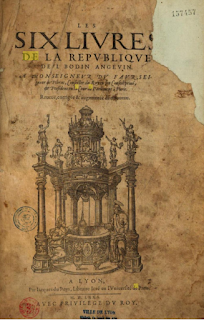He had read Claire M. L. Bourne's chapter in Early Modern English Marginalia. She offers a very interesting analysis of the marginal notes in the Philadelphia Free Library's First Folio. Her piece includes lots of photos of the annotations, and Scott-Warren noticed that they looked like John Milton's handwriting.
When I read his blog post I was immediately convinced. Not only does he show how the handwriting is similar, he demonstrates how the annotator of the First Folio cites books in precisely the same way as John Milton. Also, this is not a random connection. Milton wrote a poem for the 1632 Second Folio (the name "John Milton" below was written in by hand, it was published anonymously):
Very quickly people on Twitter started posting other samples of Milton's handwriting and they were a very close match for the samples included in Bourne's article. Look at these two examples I put together combining the original article with Twitter posts:
According to the update on his blog on 11 September 2019, Milton specialists agree (and everyone agrees on how he undersold this incredible discovery):
I’ve received a very positive response from several distinguished Miltonists who are confident that this identification is correct–and have been roundly rebuked for understating the significance of the discovery.
One Possible Theory on the Annotations
One interesting possibility is that these annotations and corrections might not have been just for Milton's personal use. He might have been preparing edits for another edition of Shakespeare's works. The marked passages might have been intended to be printed with commonplace marks, a common practice at the time to note especially important passages that readers might want to copy down into their personal commonplace books. [As of 4 October 2019, I doubt this is the case.]
The poem Milton wrote for the Second Folio was his first published writing. We still don't really know how he was connected with that publication. This new discovery suggests he had a much stronger personal connection with the works of Shakespeare than previously known. Tracing the early reception to the works of Shakespeare will likely be key in solving the Shakespeare Authorship Question.
Milton's Broader Connections
Milton had a close connection with the Egerton Family, who are known to have had Shakespeare's quartos and a First Folio in their library. Their house in Ashridge is especially of interest since Henry Neville owned property there, and the Neville family was in the same social and political circles as the Egertons. Henry Neville references Ashridge in this 1600 letter to Thomas Windebank:
And ever hereafter my motto shall be fie upon honor that brings no profit. When I come home I will become a hermit in Ashridge or somewhere in the forest, and do penance for the faults I commit here.
The grandson, Henry Neville, author of the Isle of Pines, was also a literary contemporary of Milton. So that's another area of possible interest.
What Lessons Does This Teach Us
What is the main lesson of this discovery? That there is a tremendous amount yet to be discovered! Even though this First Folio had been described in detail in published surveys of First Folios, and even though it has been sitting in a library in Philadelphia for decades, the connection to Milton is just a few days old.
As more library collections are digitized, we can expect more discoveries like this. It's a very exciting time to be involved in this kind of research.










